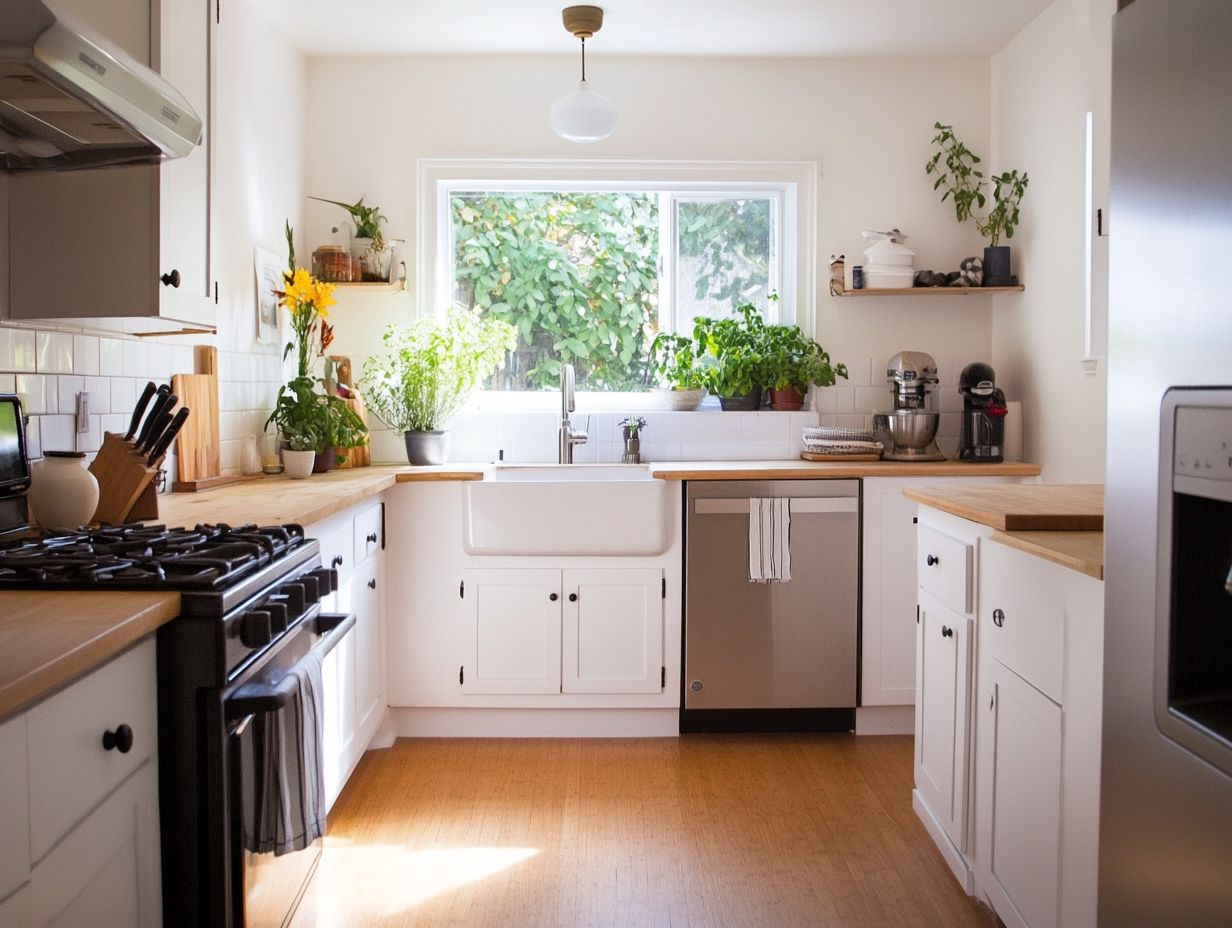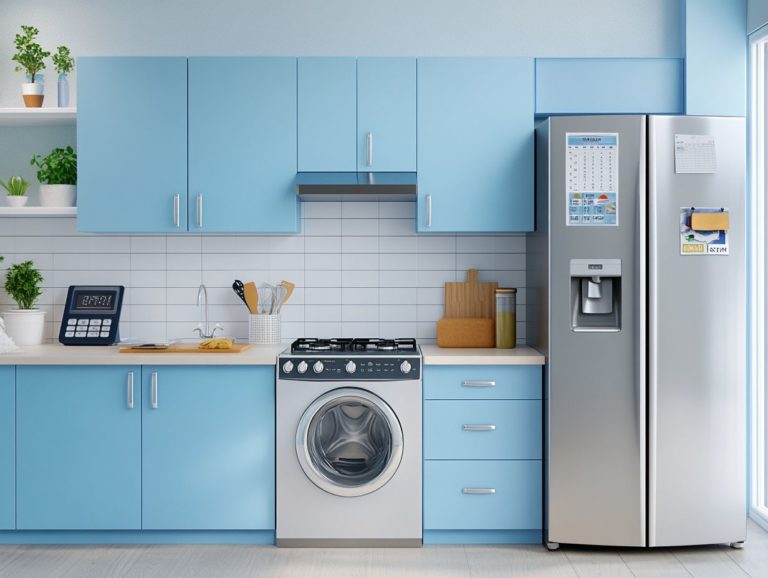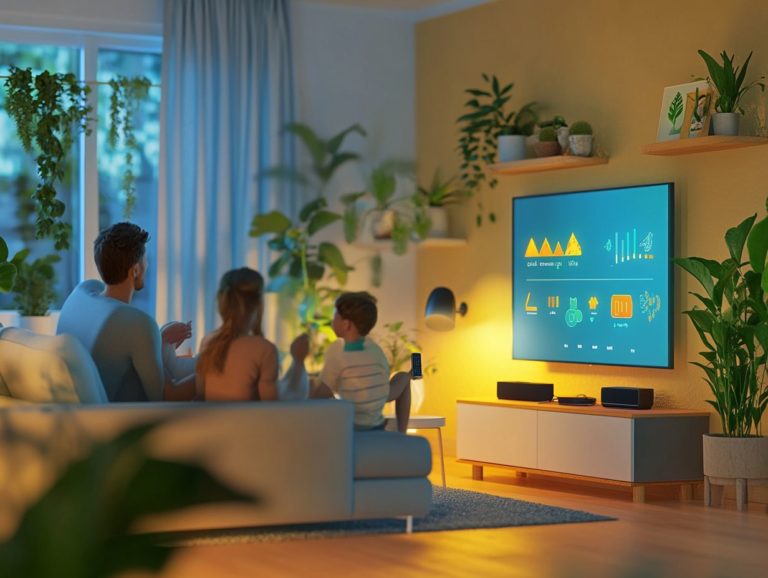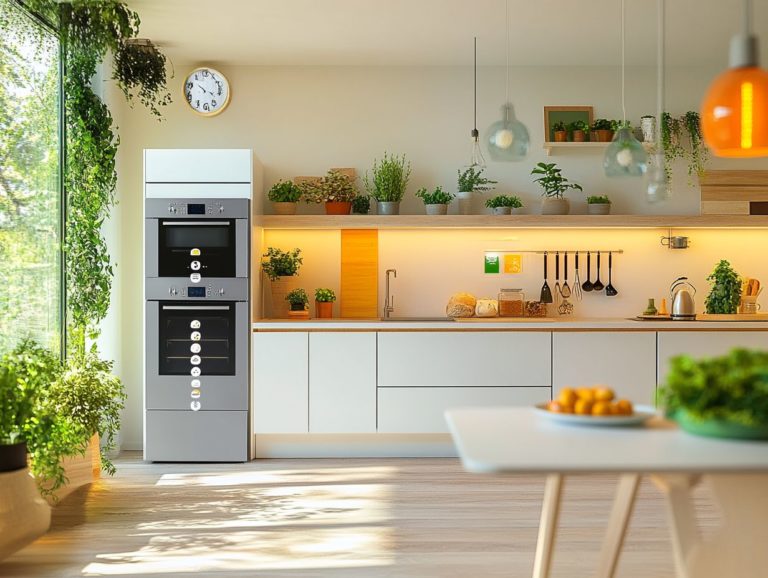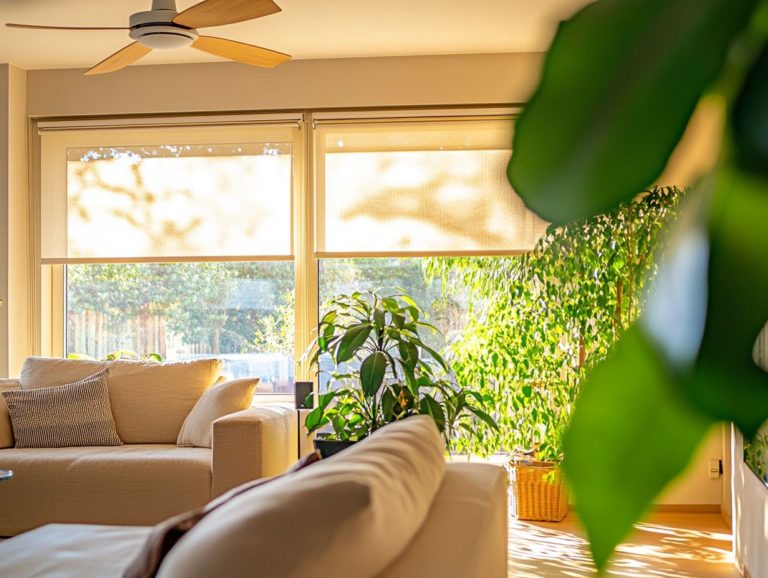How to Create an Energy-Efficient Kitchen
Creating an energy-efficient kitchen is more than just a savvy way to save money; it s an essential move towards minimizing your environmental footprint.
This article delves into the myriad benefits of an energy-efficient kitchen. You ll assess your current energy usage and discover how upgrading your appliances can make a significant difference.
It also offers practical tips on efficient cooking and cleaning, maximizing natural light, and seamlessly incorporating smart technology. Whether you re aiming for subtle enhancements or contemplating a major renovation, you ll find valuable insights to transform your kitchen into a sustainable haven.
Contents
- Key Takeaways:
- The Importance of an Energy-Efficient Kitchen
- Assessing Your Current Energy Usage
- Upgrading Your Appliances for Energy Efficiency
- Tips for Efficient Cooking and Cleaning
- Maximizing Natural Light and Ventilation
- Other Ways to Make Your Kitchen Energy Efficient
- Frequently Asked Questions
- What is an energy-efficient kitchen?
- Why is having an energy-efficient kitchen important?
- How can I make my kitchen more energy-efficient?
- What are some energy-efficient appliances I can use in my kitchen?
- How can I reduce energy waste in my kitchen?
- Are there any easy tips for creating an energy-efficient kitchen?
Key Takeaways:
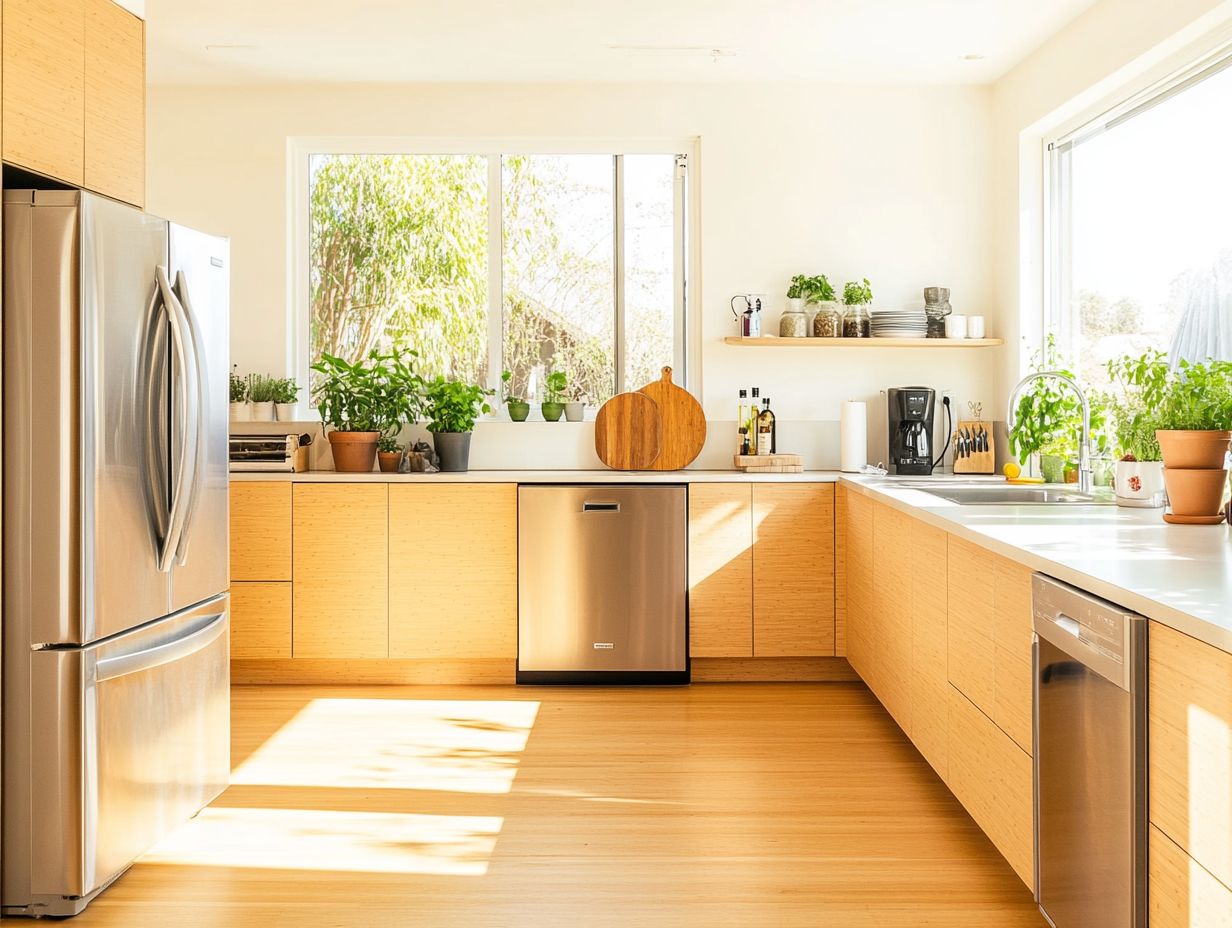
An energy-efficient kitchen is a win for your wallet and the planet. Identify areas for improvement in your energy usage to effectively upgrade appliances and reduce daily energy waste. Maximize natural light and ventilation, and consider incorporating sustainable materials and smart technology for additional energy savings.
The Importance of an Energy-Efficient Kitchen
Creating an energy-efficient kitchen is crucial for reducing energy consumption and lowering your utility bills. Consider following some tips for choosing energy-efficient appliances, as they embrace sustainable practices that benefit both the environment and your finances.
By integrating energy-efficient appliances like those with the Energy Star label and optimizing your kitchen’s design for improved ventilation and natural light, you’ll significantly elevate your kitchen’s overall energy performance.
As energy costs climb and the emphasis on eco-friendly living intensifies, investing in an energy-efficient kitchen not only fosters a sustainable lifestyle but also showcases your dedication to environmental stewardship. It also opens the opportunity for tax credits related to energy-efficient upgrades.
Benefits for the Environment and Your Wallet
Implementing energy-efficient kitchen solutions can lead to substantial savings on your utility bills while promoting sustainable practices that benefit the environment.
Watch your monthly bills plummet as energy-efficient appliances consume less power compared to their traditional counterparts. Investing in these modern upgrades not only enhances your kitchen’s functionality but may also unlock various tax credits, encouraging a transition toward greener living.
By adopting simple energy-saving tips like switching to LED lights and ensuring your appliances receive regular maintenance you can amplify these savings while actively contributing to environmental conservation.
Make smart choices today! Transform your kitchen into a model of efficiency and eco-friendliness, ultimately supporting a healthier planet.
Assessing Your Current Energy Usage
To truly enhance your kitchen’s energy efficiency, begin by assessing your current energy usage. Using checks to measure how much energy your kitchen is using will illuminate areas ripe for improvement, enabling you to significantly reduce energy consumption.
Identifying Areas for Improvement
Identifying areas for improvement in your kitchen s energy consumption is crucial for maximizing savings and enhancing overall efficiency.
By honing in on specific elements, such as selecting energy-efficient appliances, you can significantly lower your energy usage. For example, when you re in the market for a new refrigerator, look for models with the ENERGY STAR label; this indicates that the appliance meets strict energy efficiency criteria.
Efficient dishwashers are another smart choice; they not only conserve water but also optimize energy use during each cycle.
To get a clearer picture of your current kitchen habits, start by tracking your appliance usage patterns. Identifying which devices consume the most energy will enable you to make informed decisions that benefit both your household budget and the environment.
Upgrading Your Appliances for Energy Efficiency
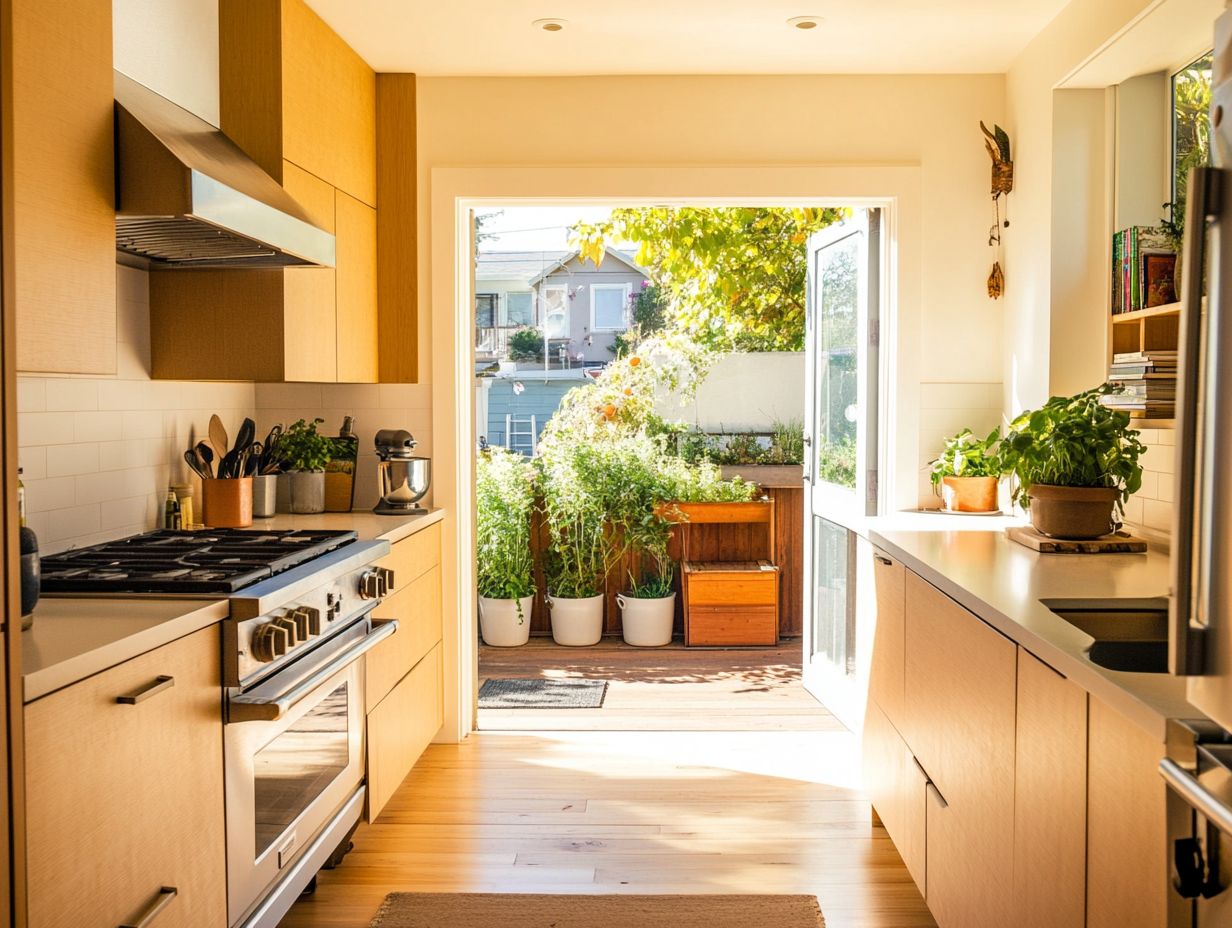
Upgrading to energy-efficient appliances, particularly those certified by Energy Star, stands as one of the most impactful strategies for enhancing your kitchen s energy efficiency and significantly reducing overall energy consumption.
Choosing Energy Star Certified Products
Choose Energy Star certified products. They ensure your kitchen appliances are energy-efficient and promote a sustainable lifestyle.
By selecting these options, you minimize energy consumption and lower utility bills, paving the way for a greener home.
Smart refrigerators, for example, come equipped with advanced technologies. These allow you to monitor energy usage and adjust settings for peak performance.
Pair eco-friendly materials with your kitchen design to boost your sustainability efforts.
By combining sustainable appliances with responsibly sourced materials, you create an environment of mindful consumption. This transforms your kitchen into a hub of energy-efficient living.
Tips for Efficient Cooking and Cleaning
Implement energy-saving tips for cooking and cleaning. You can significantly reduce your kitchen’s overall energy consumption while enjoying optimal performance.
Reducing Energy Waste in Everyday Tasks
Reducing energy waste in everyday kitchen tasks is crucial. It maximizes efficiency and minimizes energy consumption in your home.
Utilize the energy-saving features in modern cooking appliances. You can lower your carbon footprint while whipping up delicious meals.
For instance, opting for induction cooktops instead of traditional electric burners allows you to heat food more quickly and evenly.
Select efficient dishwashers with settings that save energy and water. This conserves resources while optimizing energy usage.
Maintaining proper ventilation while cooking creates a comfortable kitchen environment. It helps reduce strain on your cooling systems.
Simple habits like turning off appliances when not in use or using the microwave for smaller meals can contribute to significant energy savings.
Taking these steps can really boost your kitchen’s energy efficiency!
Maximizing Natural Light and Ventilation
Maximize natural light and ensure proper ventilation in your kitchen design. This elevates your home’s energy efficiency and creates an enjoyable cooking environment.
Utilizing Windows and Skylights
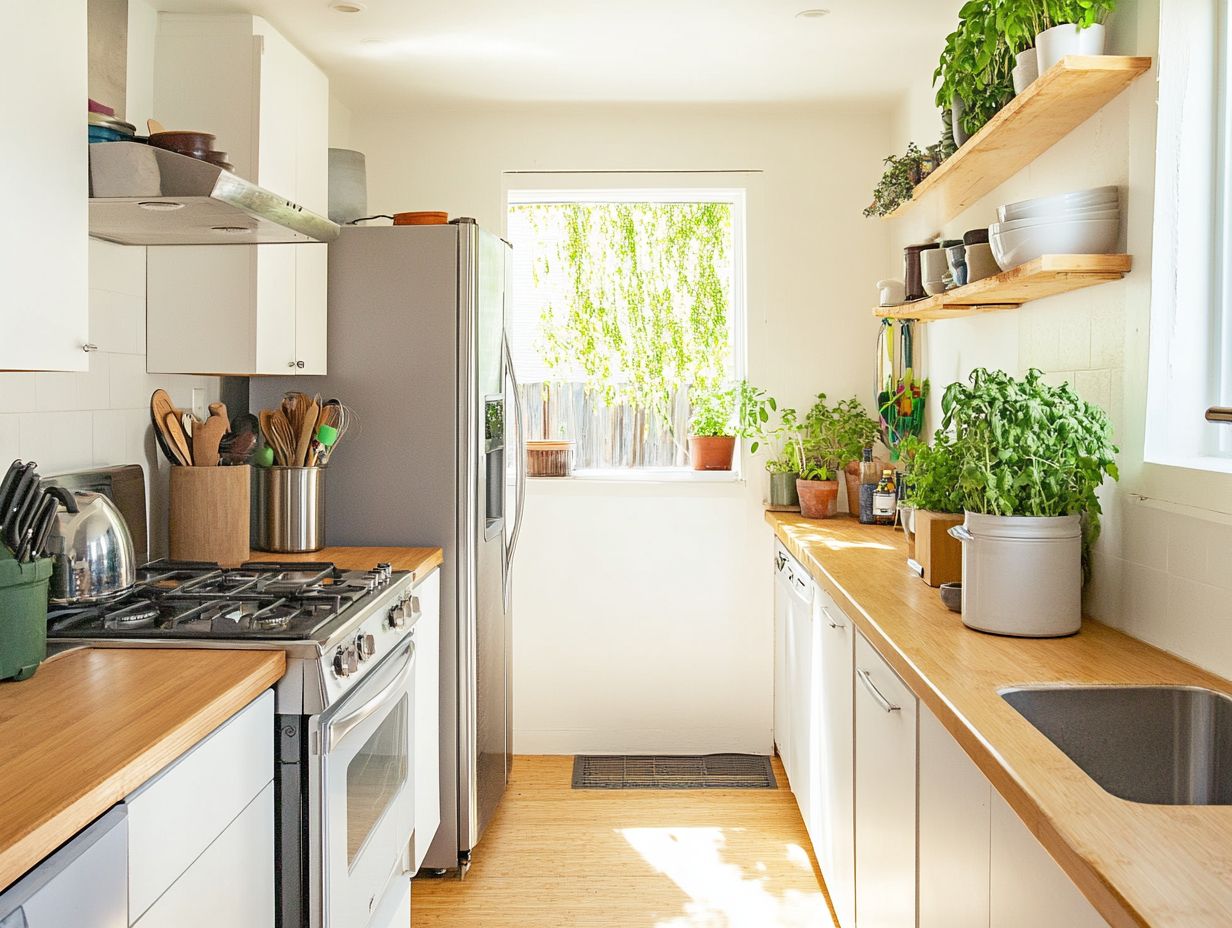
Utilizing windows and skylights in your kitchen design floods the space with natural light. This strategic incorporation reduces your energy consumption.
Abundant sunlight enhances light quality. It creates a warmth that artificial lighting simply can’t replicate.
Thoughtfully placed windows and skylights help regulate room temperature. This minimizes the need for excessive heating in winter or cooling in summer.
This balance fosters a comfortable living space and reduces reliance on heating and cooling systems. Choose energy-efficient glass and position openings to capture breezes for greater advantages.
Other Ways to Make Your Kitchen Energy Efficient
Beyond upgrading appliances and optimizing natural light, you have many opportunities to elevate your kitchen’s energy efficiency.
Incorporate sustainable materials and embrace innovative technologies. You can create a space that is both stylish and environmentally conscious.
Using Sustainable Materials and Practices
Utilizing sustainable materials in your kitchen design minimizes your environmental footprint. It also elevates the aesthetic and functionality of your space.
Eco-friendly options like bamboo and reclaimed wood add distinct character while reducing waste. This fosters a healthier environment.
Bamboo is durable, low-maintenance, and celebrated for its rapid growth and renewability. It’s an excellent choice for countertops or cabinetry.
Reclaimed wood brings warmth and a rich history to your kitchen. Transform aged materials into stunning, functional pieces.
As you embark on your kitchen remodeling journey, integrate sustainable practices. Energy-efficient appliances and proper insulation enhance these advantages.
This approach leads to reduced energy consumption and lower utility bills, championing a greener lifestyle.
Incorporating Smart Technology
Incorporating smart technology into your kitchen can dramatically enhance energy efficiency and streamline your daily tasks. You can easily monitor your energy usage with real-time data and insights.
This innovative approach allows you to track your energy consumption through devices that help you track your energy use. By observing usage patterns, you can pinpoint peak consumption times and implement strategies to minimize waste.
Smart appliances, such as energy-efficient ovens and refrigerators, come with features that automate cooking times, adjust temperatures, and alert you when it s time to unplug or reset for optimal performance.
Embrace these technologies now for a greener kitchen! By doing so, you can cultivate a more eco-friendly space, reducing your carbon footprint while enjoying the convenience of modern living.
Frequently Asked Questions
What is an energy-efficient kitchen?
An energy-efficient kitchen is designed to use less energy and reduce waste.
Why is having an energy-efficient kitchen important?
Having an energy-efficient kitchen helps lower energy bills, reduces your carbon footprint, and contributes to a sustainable environment.
How can I make my kitchen more energy-efficient?
You can improve energy efficiency by using energy-efficient appliances, upgrading to LED lighting, sealing air leaks, and utilizing natural light whenever possible.
What are some energy-efficient appliances I can use in my kitchen?
Energy-efficient appliances include refrigerators with Energy Star ratings, induction cooktops, and convection ovens.
How can I reduce energy waste in my kitchen?
You can minimize energy waste by using efficient cooking methods, such as pressure cooking or selecting the right pan size for your stovetop burners.
Are there any easy tips for creating an energy-efficient kitchen?
Absolutely! Unplug small appliances when not in use, use a toaster oven instead of a full-sized oven, and run the dishwasher only when it s full.

